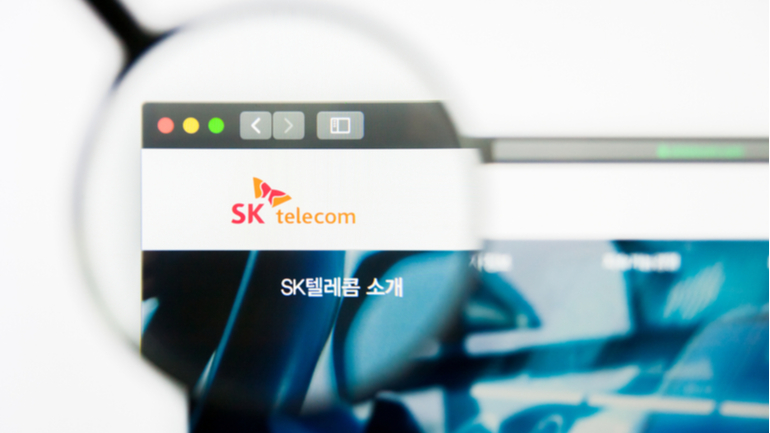Telecommunications trends tend to change dramatically every year. No one could have foreseen where 2020 would take us: during this year there were more digital transformations than in the whole of the last decade, with these transformations being accelerated by the global pandemic. Given the modernization of technology and the current situation, customer demand for reliable services has grown significantly. This means major changes and even more challenges for the telecommunications industry. With 2021 being within arm’s reach, let us take a look at the future trends and forecasts for the telecommunications and VoIP industry. 5G will go mainstream, with 6G being planned 5G technology is one of the most discussed trends in the telecommunications market today. 5G is a revolutionary fifth-generation wireless networking technology that will radically change the Internet. Its main advantages are faster internet speeds and shorter response times, while eliminating packet loss and network congestion during…
SK Telecom, the South Korean wireless telecommunications giant, with the approval of the Ministry of Public Administration and Security, has announced the launch of a new blockchain-based wallet for digital document storage. This major step could prompt South Korea to rapidly digitize state-issued documents. As claimed by SK Telecom, the wallet will be driven by blockchain technology and will work together with the Government24 Digital Initiative program, which endorses the issuing and distribution of certificates digitally. This initiative is especially relevant as the Covid-19 pandemic continues to spread worldwide. The company’s blockchain-powered wallet will work in conjunction with the Government24 app, sharing documents seamlessly between these endpoints, as well as with local and government institutions, banks and insurance providers. Citizens will be able share documents such as immigration certificates, copies of resident registration cards, health insurance documents using the mobile app managed by the blockchain. As reported by…
Maintaining an edge over competition, staying on track with ever-shifting customer needs and seeing steady revenue growth, can be hard in the fiercely competitive environment of telecoms. That is why the telecom industry needs to consider introducing new technologies into their business practices. One such promising technology that can give telecommunications business owners leverage in the industry is blockchain. Blockchain was created as a technology that brings trust where it does not exist. Currently, the telecommunications blockchain market is in its early stages, with only a few vendors having launched telecommunications blockchain solutions. Given the complex nature of blockchain and distributed ledger technology, it is clear that in order for it to succeed in the telecommunications industry, vendors will need to pool their knowledge of blockchain technology and the telecommunications industry. Bringing blockchain into play can create significant benefits and opportunities for a variety of telecommunications sectors. Some of these…
The non-profit industry group i3forum, which focuses on transformation in the network carrier business, has announced the addition of three new members – Clear, Digicel and Lanck Telecom. Clear specializes in blockchain-based settlement and clearing networks, Digicel provides total communications and home entertainment services in 33 markets across the Caribbean, Central America and the Asia Pacific regions, and Lanck Telecom offers voice and data transfer services to carriers and retail operators in more than 190 countries worldwide. “New members bring new perspectives and insight to our discussions, workgroups and initiatives. We are excited to have Clear, Digicel and Lanck Telecom join us and share their expertise across a variety of topics. Unique voices and opinions support our vision for open and inclusive collaboration,” said Philippe Millet, Chairman at i3forum. “It is a very exciting time for i3forum as we get new initiatives off the ground and take our organization to new places. I’d…
FIX Network has announced a significant achievement towards their goal of securing transactions and private keys on SIM cards. As an innovative joint venture made of leading teams in telecoms, cybersecurity and blockchain, FIX Network will leverage the existing cellular infrastructure by defining and implementing a new blockchain-based security protocol. According to the announcement, the FIX Network Security Protocol will ensure the security and safety of private keys used by applications on mobile devices, and will provide a trusted environment for protecting a customer’s digital identities and digital assets. A significant innovation by the company is the storage of private keys on the subscriber’s SIM card, and the execution of cryptographic operations on that SIM card using applets. FIX Network emphasized that the private keys are never exposed to the mobile device or to a public network, thus enhancing security of the stored Digital Identities and other digital assets such…
US telecom giant Sprint Corporation has announced that it is working with Arizona State University (ASU) to promote economic, educational, technological and social growth in the entire Arizona region, leveraging the power of Sprint’s True Mobile 5G and Curiosity™ IoT’s advanced dedicated network and operating system. This groundbreaking collaboration will combine the innovations of 5G and Curiosity™ IoT, create a new IoT curriculum and reach millions of residents. Sprint’s Curiosity™ IoT is the first dedicated, virtualized and distributed core IoT network that is purpose-built for software. Hosted on a solid foundation from technology leaders including ARM, Ericsson and AWS, this service leverages bare-metal design, and enables the delivery of low latency, high availability connectivity. The fourth-largest mobile network operator in the US stated that they designed Curiosity™ IoT “to solve the challenges of today and be ready for the needs of the future.” In a press release, Sprint said it will work alongside ASU…
DIDWW, the cloud telephony platform focused on providing virtual phone numbers on a global basis, has recently been assigned a new international shared country code by the ITU (International Telecommunication Union). This organization is the United Nations specialized agency for information and communication technologies, and is responsible for implementing technical standards that ensure the seamless interconnection of networks. In the past, the company highlighted the vulnerabilities and shortfalls of the current number portability procedures and how it was possible that a subscriber could lose their phone number. This problem has become critical due to the fact that phone numbers are increasingly used as a supposedly secure means of identification and authentication in our journey towards full digital transformation. As per DIDWW’s official announcement, the company strongly subscribes to the ITU’s philosophy that the phone number is an asset that must be owned by the end-user, and the company…
The accomplished blockchain technologies company PeerStream, Inc. has joined the partnership of Telefonica’s cybersecurity unit ElevenPaths and decentralized hardware-based cybersecurity leader Rivetz, to work cooperatively on next-generation zero trust architectures, and offer privacy and security protection for business communications. Alex Harrington, CEO of PeerStream, said: “We are excited to collaborate with such esteemed partners to build groundbreaking software that has the potential to deliver real value for a large worldwide client base. We are honored to join ElevenPaths and Rivetz in this common vision.” PeerStream is focusing on privacy and security improvements and the development of enterprise-grade communications software that is being readied to enter the market under the Backchannel brand. Backchannel incorporates a growing suite of software tools created to control secure, real-time data and messaging channels, including support for video streaming. The company’s decentralized network routing technology may operate on either blockchain or traditional distributed architectures. …
VoIP has become an integral part of the day-to-day lives of many people throughout the world, offering a plethora of technological advancements and options, simplifying many communication processes and making interactions more convenient and consumer friendly. VoIP is one of the most talked-about technologies, and its prevalence is anticipated to grow in the upcoming years. Over the last twenty years, VoIP has provided businesses around the world with the convenience of increased mobility, due to constant development and emerging cutting-edge technologies. The usage of VoIP as a service has grown rapidly – between 1998 and 2002, VoIP carried only 1-3% of all voice calls worldwide, but in 2005, VoIP was responsible for more than 200 billion call minutes. With 2019 already underway, let’s have a look at what the future holds for the VoIP communications industry. In particular, we examine the insights and predictions regarding the trends and technologies that will…













